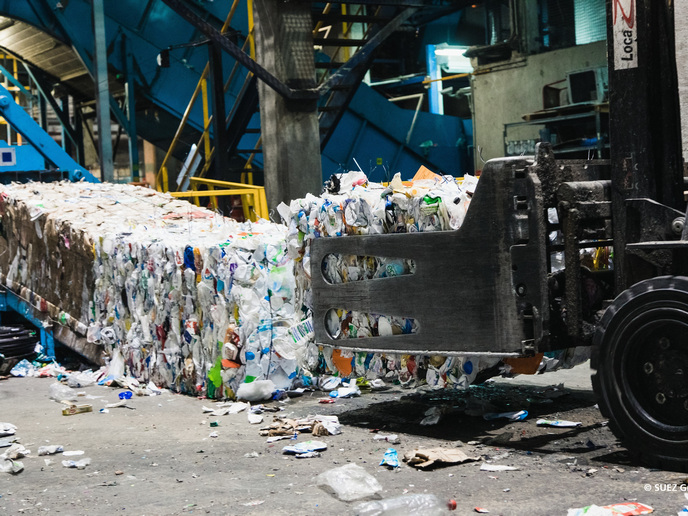New solutions for recycling plastic food packaging
Food packaging accounts for roughly 87 % of all flexible multilayer composite(opens in new window) plastics used in Europe. The multilayered composites cannot be recycled using conventional recycling processes. Furthermore, even when recycled, the post-consumer recyclates (PCRs) cannot be reused in food packaging unless they originate from a closed and controlled food packaging waste loop, according to European Food Safety Authority regulations. Moreover, the need to deodorise and remove ink from recycled polyethylene (PE PCR) poses further challenges to recyclability. With an interdisciplinary team boasting 5 research organisations and 10 industrial partners, the EU-funded project CIRCULAR FoodPack(opens in new window) developed novel approaches to improving the recyclability of multilayer composites used in food packaging. CIRCULAR FoodPack is part of a cluster of seven projects aimed at bringing plastics more fully into the circular economy, in accordance with the European circular economy action plan(opens in new window).
Tracer-based sorting enables circularity
CIRCULAR FoodPack’s main target was to reduce the use of virgin plastics in flexible packaging by enhancing the recyclability of these materials and improving the quality of PE PCRs. To sort the flexible food packaging materials and create the necessary closed loop for reusing their PCRs, the project successfully validated tracer-based sorting (TBS) and separated flexible food packaging waste from other plastic packaging waste. The success of this approach was an important achievement. Project coordinator Esra Kücükpinar explains: “The TBS system achieves 99 % sorting purity for flexible food packaging separated from household packaging waste. Unlike AI-based solutions, which struggle with flexible packaging, TBS is a cost-effective, material-independent solution.”
Addressing challenges of de-inking and decontamination
Separating food packaging from other packaging waste is only the first step of many towards cascade recycling and integration into the circular economy. Any ink or adhesive must be removed, as must organic contaminants and odours. The project used mechanical and dissolution-based physical recycling approaches to achieve this, notably the application of project partner Fraunhofer IVV’s CreaSolv®(opens in new window), which was adjusted to increase recyclate purity. Removing ink from flexible plastics proved challenging; colourants tended to reabsorb on the material. Project partner UGENT(opens in new window) developed an industrial de-inking process in a water-based medium. Additionally, testing led to optimised ink formulations at the project partner SIEGWERK(opens in new window) by incorporating alternative binders, additives and pigments for easier de-inking. While TBS was validated to scale, the infrastructure for solvent-based treatments for delamination and de-inking remains to be built. However, CIRCULAR FoodPack was able to achieve PE-based recyclable flexible food packaging material composed of 30 % PCRs using functional barriers.
Demonstrator products and consumer readiness
The project team analysed the waste generation and collection status of flexible plastics in several European countries. Feasibility studies show that the valorisation for PCRs derived from CIRCULAR FoodPack technologies is comparable to the cost of virgin PE. The project developed several demonstrator products using the PCRs obtained through their innovative technologies. These include personal and homecare products as well as dry food packaging for cocoa and coffee powder. The results of CIRCULAR FoodPack are encouraging. To reach the recycling potential of plastic food packaging waste, Europe needs policies, investments and industry-wide collaboration that improve the design of packaging structures, enable recycling cascades and provide certificates of quality that comply with EU standards. Kücükpinar states: “By educating consumers, fostering collaboration, and ensuring transparency, CIRCULAR FoodPack technologies aim to establish a scalable closed-loop system for recycling food-grade multilayer composites and reusing them in flexible food packaging.”





